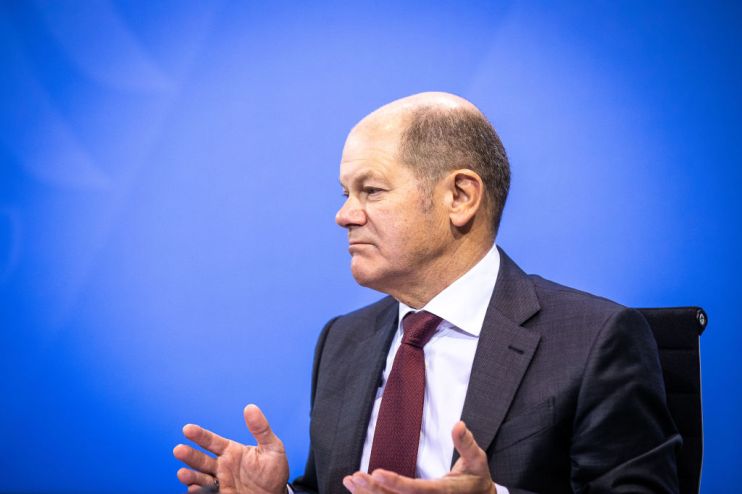German finance minister lashes out at EU vaccine drought

Germany’s finance minister has renewed tensions within the bloc following a high-profile tussle last week over EU vaccine shortages.
Olaf Scholz told the BBC this afternoon he was “angry about some of the decisions that were taken last year”, among suggestions that the EU failed to order sufficient vaccine supplies for its member states.
So far, less than four per cent of adult EU citizens have been immunised against coronavirus, compared to around 20 per cent of adults in the UK.
European Commission president Urusula von der Leyen has come under fire for the sluggish rollout of the vaccine across Europe and subsequent attempts to blame pharmaceuticals companies producing the jabs.
European Commission officials tried to pressure Astrazeneca into diverting some of its UK vaccine supply to the bloc last week after the company said manufacturing problems meant it could not commit to delivering agreed doses to the EU.
When Astrazeneca refused, the EU attempted to override the Brexit deal to introduce export controls on vaccines out of the continent.
The EU swiftly rowed back on the threats following widespread condemnation from British leaders, with Von der Leyen admitting “complete responsibility” for the mix-up.
Asked about von der Leyen’s responsibility for the slow rollout, Scholz told the BBC: “I think there had been the opportunity to order more of the vaccines. I think it is necessary that anyone learns the lesson, and this is also [true] for Europe.
“I think the European Union is strong,” he added.
Germany last week recommended blocking the Astrazeneca vaccine for use on over-65-year-olds, claiming there was “insufficient data” to grant it emergency approval.
The move followed days of confusion over Germany’s stance on the Astrazeneca vaccine, in the wake of incorrect reports by local German media that the jab was only 8 per cent effective among over-65s.
Daily business paper Handelsblatt and mass-circulation newspaper Bild cited anonymous German government sources as casting doubt on the vaccine’s effectiveness.
German ministers later clarified that the figure had been quoted mistakenly, while Astrazeneca slammed the reports as “completely incorrect”, accusing Germany of making the Anglo-Swedish firm a scapegoat for the country’s slow vaccine rollout.